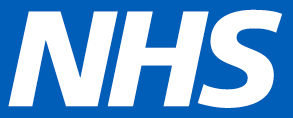May is bladder cancer awareness month and I felt compelled to write a short blog for both personal and professional reasons. Whilst not the most prevalent cancer in the UK, bladder cancer has around 10,300 new cases diagnosed per year, which equates to 28 per day.
There is currently no national screening programme in place and half of all new referrals come via the urgent suspected cancer (two-week wait) pathway, with the others coming via a range of other routes including approximately 17% presenting as an emergency (CRUK 2018). In the world of urology cancer, it is eclipsed by prostate cancer which is much more prevalent and therefore attracts more research interest and funding.
Cancer awareness campaigns aim to help people recognise possible signs of cancer and get checked. The main symptom of bladder cancer is blood in urine, but other common symptoms include passing urine very often (frequency), passing urine very suddenly (urgency) and pain or a burning sensation when passing urine. Less common symptoms include unexplained weight loss, pain in the back, lower abdomen, and bones, and generally feeling tired and unwell. More information about bladder cancer and bladder cancer awareness month can be found on the World Bladder Cancer website.
I guess my main reason for writing this blog was because a close friend has recently been diagnosed with bladder cancer. Due to my professional experience but also the fact that she is a single mother of two grown-up girls, both with their own challenges I have been supporting her during this time. This involves trips to Southmead Hospital's urology department and then post-appointment sessions in Costa to debrief and take onboard essential caffeine!
Bladder cancer can be difficult to diagnose, and my friend’s diagnosis has not followed the standard routine pathway. She has an unusual type of cancer in an unusual part of the bladder. This comes with its challenges. Much of the treatment option and prognostic information is unknown until after she has a very major operation to remove the bladder and form an ileostomy (external bag fitted onto her abdomen to collect urine). The operation will be performed robotically using the DaVinci robot. My friend and I now affectionately refer to ‘DaVinci’ as if he or she was a real person and not a very clever piece of kit operated by highly skilled surgeons! It’s part of trying to keep as much of this as light-hearted as possible.
However, being in this position where the outcomes are unknown is tough. It could range from a good outcome in terms of survival but resulting in very significant adverse quality of life post-op, to a requirement for follow-on treatments with a very uncertain outcome in terms of survival. As a friend, all you want to do is reassure and say everything is going to be fine. Not having the answers is hard.
May is certainly going to be significant as her surgery, immediate recovery and outcome of the tumour histology are likely to be revealed. It feels like her life is on hold and as a network of friends and family, we are trying our best to support her both practically and emotionally. At times like these, you are truly grateful for the NHS and the expertise it offers. The team at North Bristol are the regional centre of excellence for managing bladder cancer, with wrap-around support available through the wider cancer service team and via the amazing voluntary sector, including Action Bladder Cancer UK and the North Bristol Macmillan Wellbeing Centre.
Our Cancer/ LTC team at SCW works closely with several Cancer Alliances, ICBs and the National Cancer Programme. Early diagnosis of cancer is a key priority for all these organisations but with so many different cancer types this is a vast challenge! We completed deep dive bladder data analysis for a Cancer Alliance in 2022. It highlighted a significant range of routes to diagnosis, variation in diagnostic procedures and pathway lengths across the providers involved. Combining expertise from SCW including clinical and BI with the Cancer Alliance team enabled focused discussions between clinicians and service managers to identify areas for improvement.
This type of approach enables Cancer Alliances to standardise their local pathways and improve outcomes for patients. Our unique position at SCW allows us to share outputs like these across a much wider geography to benefit more patients and provide real value to the NHS.
For more information about the work we do within the Cancer/Long-Term Conditions team at NHS SCW, please contact
This article was written by Catherine Neck during her time at NHS SCW as Programme Lead - Cancer and Long Term Conditions. She now works for the SWAG Cancer Alliance.









